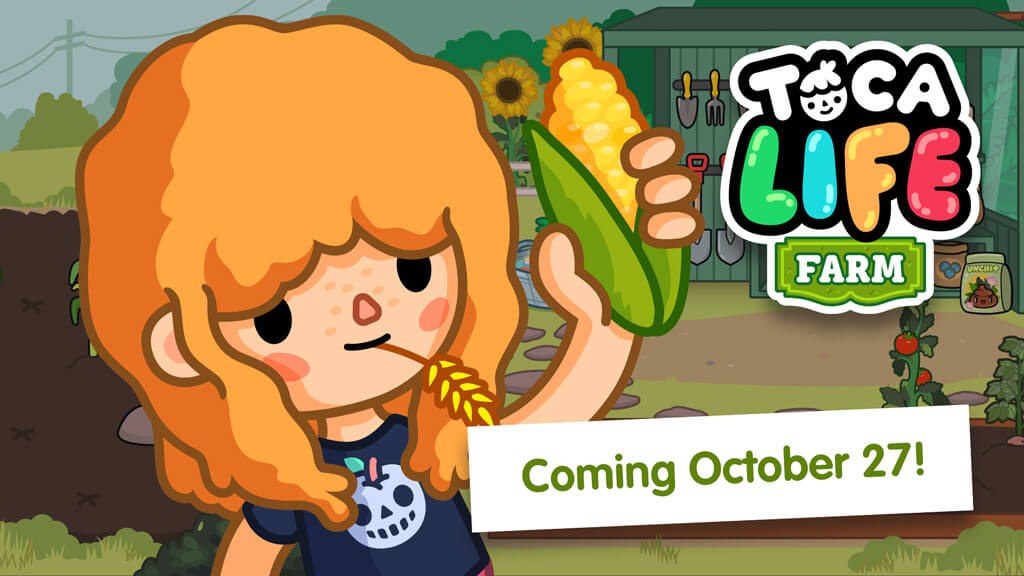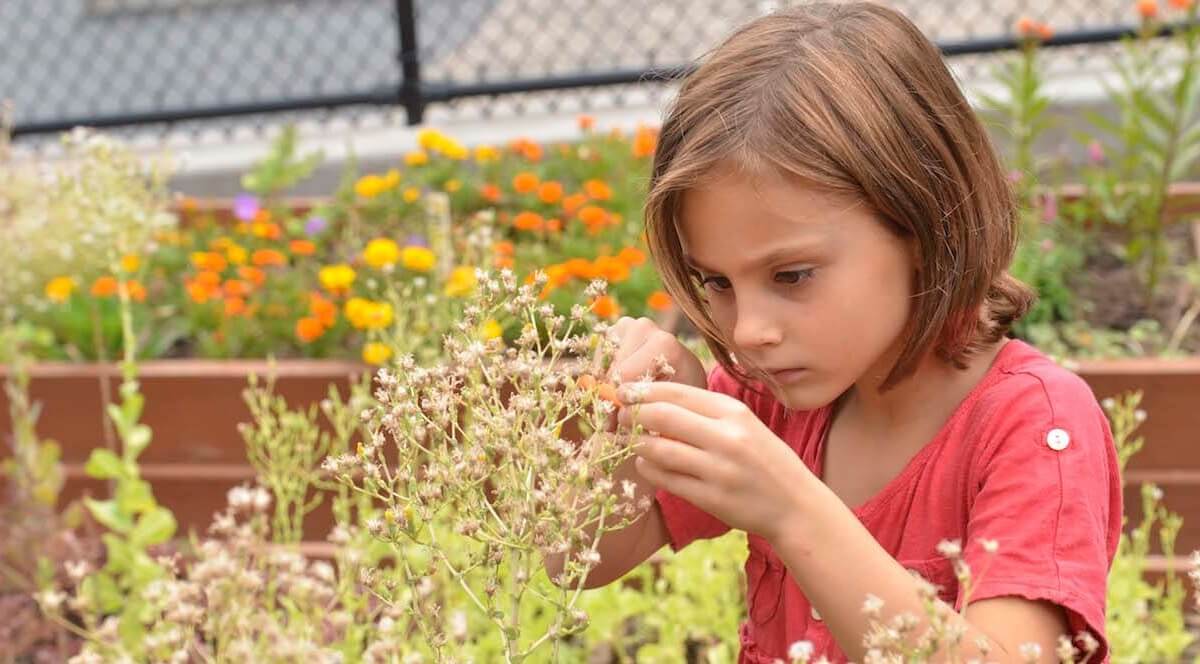Toca Magazine's Kid's-Eye View project helps adults see the world through the eyes of kids.
- By
- Parker Barry
 Laye Mclean
Laye Mclean
Age: 12
Residence: A farm in rural California
Fun Fact: Laye made up her own name! Her parents call her Lily, which is her birth name, but her friends know her by Laye. When she was 5, she wanted to be called Snowball.
I’d always wanted to move to the country. In April 2015, this wish became reality when my mom and I left San Francisco to live on a farm. We grow olives, plums, cherries, apples, pears, apricots and peaches, and we also raise chickens and sheep and goats. I’m now the sole caretaker of our 54 poultry, and it’s actually easy. I help with our sheep and goats as well, doing some of the daily milking and herding them from pen to pen.
When we first arrived, I didn’t feel like I would fit in at all. It seemed like I didn’t have the right skills to be here. But after a few weeks, I started to really enjoy all the aspects of farm life. I have a lot of responsibility, and I’m proud of the work I do. A lot of adults don’t give children a chance to prove that they can be responsible and independent and so they have this idea that kids really can’t do anything. Children are capable of a lot.
A lot of adults don’t give children a chance to prove that they can be responsible and independent.
A day in my life on the farm
 My main job is caring for our poultry, so the first things I do in the morning are my chicken chores. The earlier the sun comes up, the earlier I let the chickens out of their coops. Once everyone is out, I scatter grain for them on the ground by the coop and then put the rest of their morning feed in the feeder inside the coop. Then I put sawdust on the floor and the tops of nesting boxes and make sure the nests are clean. At the moment, we have two flocks of chickens. There are 29 adult chickens in one of our olive orchards, along with three ducks. In a different garden where our cherry trees are, we keep our 35 teenaged chicks.
My main job is caring for our poultry, so the first things I do in the morning are my chicken chores. The earlier the sun comes up, the earlier I let the chickens out of their coops. Once everyone is out, I scatter grain for them on the ground by the coop and then put the rest of their morning feed in the feeder inside the coop. Then I put sawdust on the floor and the tops of nesting boxes and make sure the nests are clean. At the moment, we have two flocks of chickens. There are 29 adult chickens in one of our olive orchards, along with three ducks. In a different garden where our cherry trees are, we keep our 35 teenaged chicks.
Sometimes, after chicken chores, I go to the barn and help with the milking or the morning walk with the sheep out to whichever pen they’re currently in. Then, I go back to our yurt for breakfast.
 During the day I do schoolwork or help with some of the chores around the farm. I also practice archery or photography. In the afternoon I go back to the chickens to feed them again and gather the eggs. Sometimes we have dinner with our neighbors but most nights we just eat at home. Once it’s dark I go to shut up the chicken coops so no predator can get inside.
During the day I do schoolwork or help with some of the chores around the farm. I also practice archery or photography. In the afternoon I go back to the chickens to feed them again and gather the eggs. Sometimes we have dinner with our neighbors but most nights we just eat at home. Once it’s dark I go to shut up the chicken coops so no predator can get inside.
The hardest parts of farm life
The hardest part of farm life for me is watching our animals suffer. We have quite a few predators in our area, including coyotes, bobcats, mountain lions, hawks, raccoons, rattlesnakes and foxes, and every year we lose some of our chickens, no matter how hard we try to protect them.
In winter, when sheep are lambing, we get stillborn lambs or weak lambs who don’t last long. Sometimes the ewes will abandon their offspring, which is always tragic even though it’s easy to bottle-feed a lamb.

Last winter we had a little ram-lamb who I named Pip who was abandoned by his mother. He had a limp when he was born and his sister was much larger and healthier so his mother chose her over him. I became his adopted mother and for the first month or so of his life, I got up every four hours, night and day, to heat up a bottle of milk-replacer for him and then bring it out to the barn and feed it to him. It was quite stressful at times and sometimes the night would be stormy and I’d have to go out in the rain and wind.
It can also be hard to live such a rustic life. Sometimes we don’t have hot water, sometimes we can’t get the wood stove to start and we end up freezing cold in winter and sometimes we don’t have enough power to turn on lamps or charge electronics.
The best parts of farm life
 I really love the animals. Before we came here, my family had always had cats but nothing more. I didn’t know how to care for chickens or sheep or goats, I’d only milked an animal a few times and I’d never collected eggs. Now that I’m able to spend so much time with animals, I appreciate their intelligence and value in a way I didn’t when I lived in the city.
I really love the animals. Before we came here, my family had always had cats but nothing more. I didn’t know how to care for chickens or sheep or goats, I’d only milked an animal a few times and I’d never collected eggs. Now that I’m able to spend so much time with animals, I appreciate their intelligence and value in a way I didn’t when I lived in the city.
I also enjoy being able to hike and explore as much as I can. I used to read old books by E. Nesbit or Arthur Ransome about children who were incredibly independent and resourceful. I wanted to be like them and do the things they did, but they always had a helpful field to explore or a few acres of wild, mysterious woods. Living in the city, the best I could find were parks and even then, I couldn’t run around on my own for hours but moving to the country gave me a chance to do all the things I’d wanted to do. Now I can take hourlong walks at any time and I’ll see woodland creatures and jump over streams or find some new, exciting place I’d never noticed before. It’s wonderful.
Life in a rural community
We’re very close to our neighbors. In such a rural community, everyone helps each other out. We go and help people with their harvests or visit them for dinner and vice versa. Everyone has their own systems and ways of life but we all get along for the most part.
In such a rural community, everyone helps each other out.
There are very few kids my age around us, and since I’m a homeschooler, I don’t have many chances to meet new friends — but I’m fine with that. And while I think it would be wonderful if I were able to live on a farm when I’m an adult, I don’t think I’d want to immediately move to a different farm once I reach adulthood. I think it’s important to gain other experiences first, and farm life can be a very isolated way of living. So maybe later on in life but not right away.
On the question of animal cruelty
 People tend to believe that living on a farm automatically means that we hurt our animals or that we don’t care for them correctly, but not all farms are cruel to animals. I find myself explaining this to people quite a lot. I love animals and I respect them and I never maltreat them. Although there are farms that do that, ours is not one of them, and most aren’t. I think that’s important for people to understand.
People tend to believe that living on a farm automatically means that we hurt our animals or that we don’t care for them correctly, but not all farms are cruel to animals. I find myself explaining this to people quite a lot. I love animals and I respect them and I never maltreat them. Although there are farms that do that, ours is not one of them, and most aren’t. I think that’s important for people to understand.
Photos courtesy of Laye Mclean.


